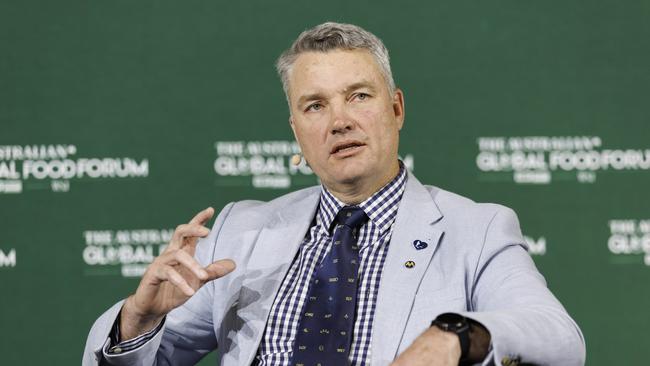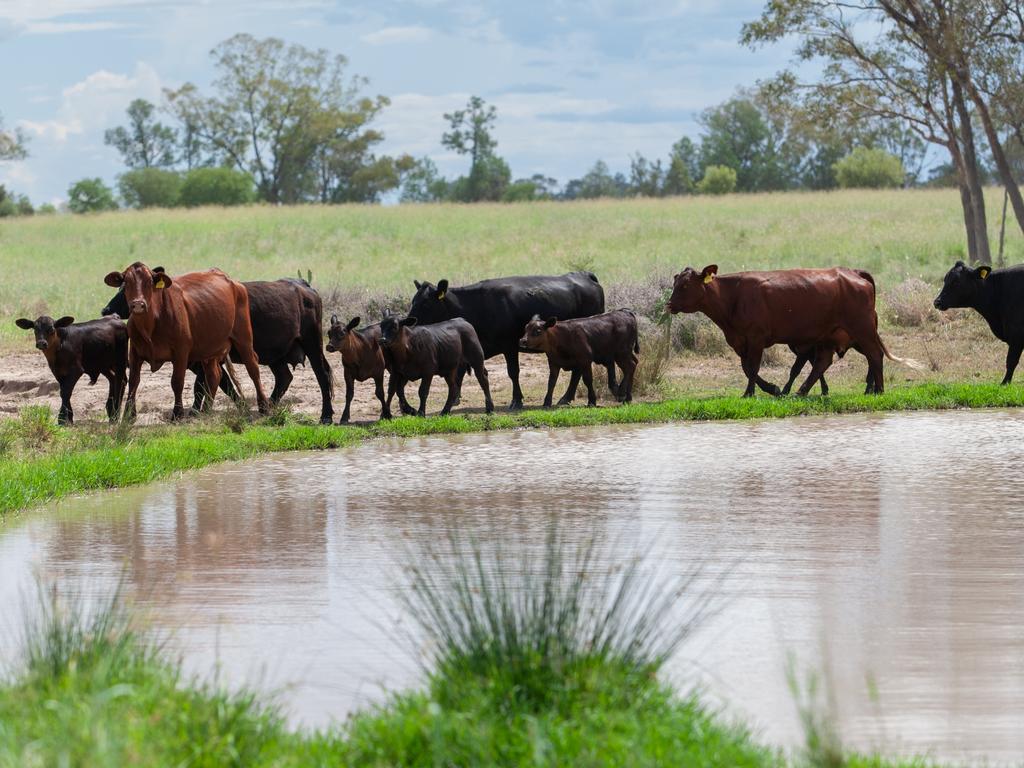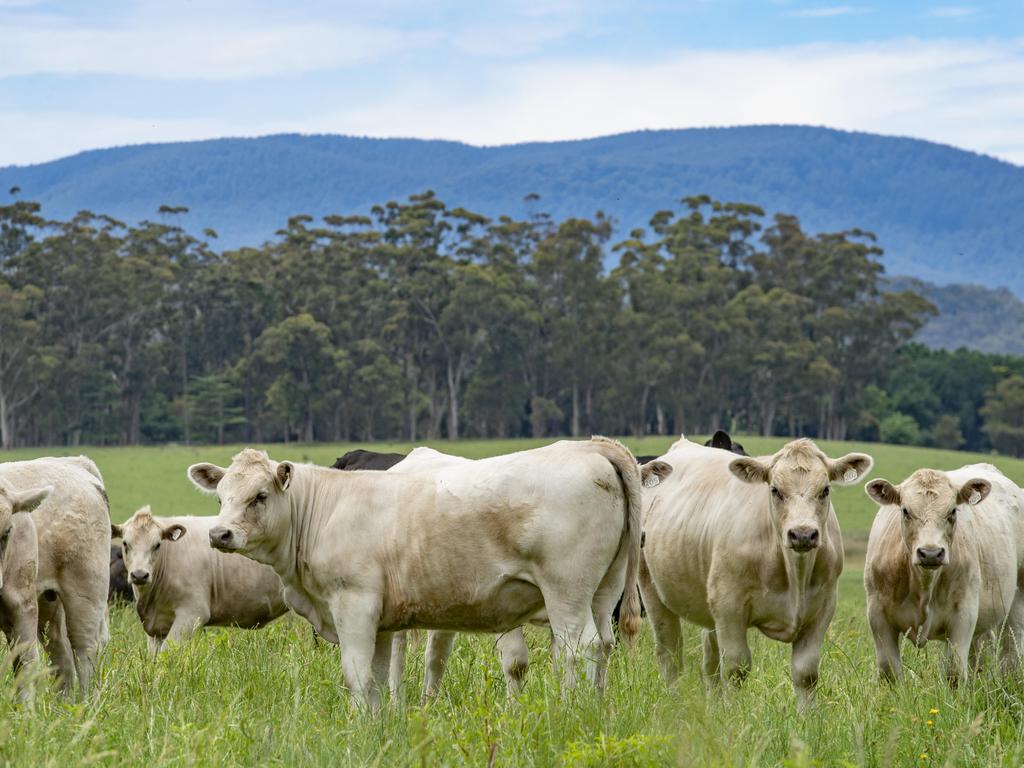AACo chief says farmers are facing their ‘greatest threat’ against activists
The head of Australia’s oldest company and biggest beef business says farmers are fighting for their existence against activist misinformation.

Farmers are used to fighting the elements, volatile markets and the challenges of hard labour, but the head of Australia’s oldest company and biggest beef business says the cattle sector now faces its greatest existential threat from activists peddling green ideology and spreading misinformation about the industry.
David Harris, chief executive and managing director of the publicly listed Australian Agriculture Company, which turns 200 this year, said beef producers were “fighting for (their) very existence” against global forces pushing agendas on climate emissions, animal welfare, the environment, water use, and diets.
He said public trust in farmers had been eroded in recent years by false perceptions about farming practices.
Speaking in the wake of the Albanese government’s move to shut down the live sheep export industry after years of activist complaints, Mr Harris said zealots intent on undermining farmers and destroying the red meat sector based on ideological agendas ignored evidence of the industry’s efforts and improvements towards environmental sustainability and animal welfare.
“We’ve survived over the years, both as a company and an industry, droughts, depressions, disease, floods, fires, and pandemics,” Mr Harris said in a speech at the Queensland Rural Press Club’s annual Malcolm McCosker Memorial Address.
“However, I’d go as far to say that this current challenge to our reputation could be our greatest yet because while those other issues are localised, one-off or temporary … it is now the case that some of us are fighting for our very existence.
“What happened to live cattle exports more than a decade ago, and what’s happening to live sheep exports now, illustrates how great these challenges are, and it’s not going away.”
As an example, Mr Harris cited criticism of the industry’s effort to reduce carbon emissions, which have decreased by 78 per cent since 2005, according to the CSIRO.
In comparison, the nation as a whole is on track to reach 42 per cent below 2005 levels by 2030, according to the environment department. Last week, the Climate Council warned more work needed to be done to promote “protein alternatives such as lab-grown meat and dairy products” and to generate public education campaigns about the “environmental and climate impact of different types of food”.
Various groups advocating for reduced red meat consumption are pressuring the federal government to incorporate environmental sustainability in the official Australian Dietary Guidelines, and councils in Victoria are promoting meat-free diets despite scientific evidence for the importance of meat consumption.
A Global Burden of Disease report published in British medical journal The Lancet in 2019 claimed 896,000 deaths were caused by eating red meat.
Despite serious concerns being raised by scientists about the study, by 2022 it had been cited by 635 documents, including 351 scientific papers, and was being used to inform government policy.
Netflix’s 2014 documentary Cowspiracy falsely claimed livestock production was responsible for 51 per cent of global emissions, well above the United Nations Food and Agriculture Organisation estimates of 12 per cent.
Mr Harris said misconceptions about agriculture would be changed if all Australians were to visit one of the company’s properties to see how most rangeland grazing operations worked in tandem with the environment.
He said farmers needed to better educate disconnected consumers about how their food and the fibre they wore was produced.
“People will make assumptions based on headlines, stories or images that are skewed to meet particular agendas, or what they hear from friends or around the water cooler in corporate offices,” Mr Harris said. “It’s harder and harder to find information that is grounded in fact.”
While huge leaps in technology have been made towards reducing livestock methane emissions in the past few years, activist groups say the work is progressing too slowly.
“The latest government data shows that when compared to the rest of the world, we are actually doing remarkably well on things like emissions intensity,” Mr Harris said. “Australian cattle production is already among the most sustainable in the world.”






To join the conversation, please log in. Don't have an account? Register
Join the conversation, you are commenting as Logout